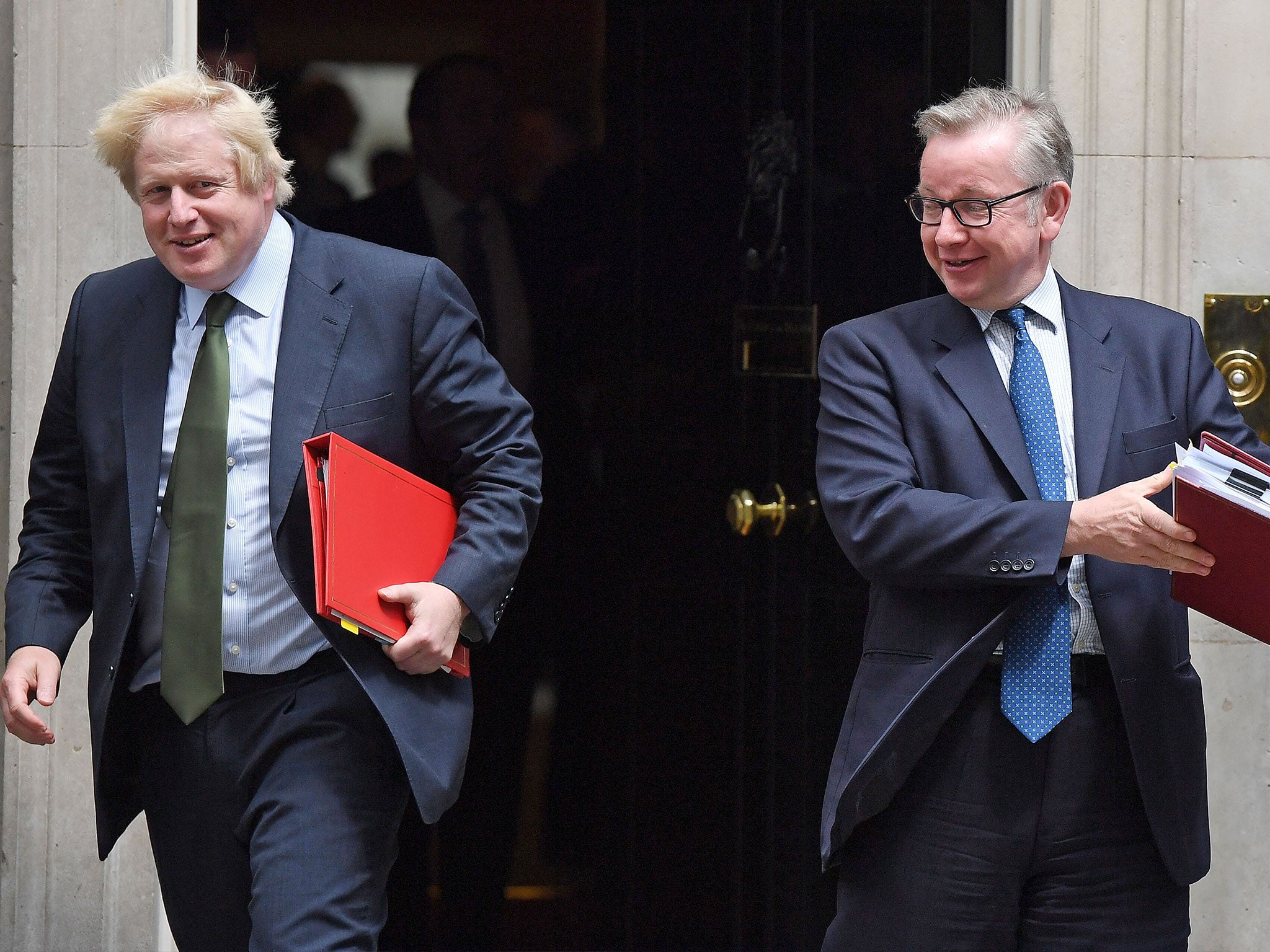Boris Johnson warns UK could become a 'vassal state' if it accepts EU's Brexit plans
The Foreign Secretary's comments pave the way for a heated Cabinet discussion on the Brexit end state

Your support helps us to tell the story
From reproductive rights to climate change to Big Tech, The Independent is on the ground when the story is developing. Whether it's investigating the financials of Elon Musk's pro-Trump PAC or producing our latest documentary, 'The A Word', which shines a light on the American women fighting for reproductive rights, we know how important it is to parse out the facts from the messaging.
At such a critical moment in US history, we need reporters on the ground. Your donation allows us to keep sending journalists to speak to both sides of the story.
The Independent is trusted by Americans across the entire political spectrum. And unlike many other quality news outlets, we choose not to lock Americans out of our reporting and analysis with paywalls. We believe quality journalism should be available to everyone, paid for by those who can afford it.
Your support makes all the difference.Boris Johnson has increased cabinet tensions ahead of a crunch meeting this week after warning that the UK could become a “vassal state” if it accepts EU plans for Brexit.
The Foreign Secretary said he wanted a “liberal Brexit” in which the UK could reject new EU rules after 29 March 2019.
But on Saturday, Chancellor Philip Hammond said the UK would pursue a two-year transition phase that would “effectively replicate the status quo”.
A special Brexit war Cabinet will meet on Monday to hammer out what relationship the UK should have with the EU in the long term, with a full Cabinet meeting on Tuesday.
In an interview with The Sunday Times, Mr Johnson said said any deal must give Britain “that important freedom to decide our own regulatory framework, our own laws and do things in a distinctive way”.
He said if the UK was forced to mirror EU laws, many people “would say, ‘What is the point of what you have achieved?’ because we would have gone from a member state to a vassal state”.
Mr Johnson said Ms May had done a “fantastic job” securing the green light on Friday from EU leaders to move Brexit talks onto the future trade deal.
But in a move that led to concern in Tory ranks over the future relationship with Brussels, Britain has already agreed to match EU rules on areas that affect the Good Friday Agreement in a bid to ensure the border between Ireland and Northern Ireland remains open.
The Cabinet is reportedly split between those who want to keep tightly to EU rules, like Mr Hammond and Home Secretary Amber Rudd, and those who want to push further away.
But Mr Johnson said even Mr Hammond would want some level of divergence - pointing to the recent Budget and the Chancellor's desire to boost the UK tech sector.
“It was very notable in the Budget speech that the Chancellor majored on the idea of future regulatory divergence,” Mr Johnson said.
“Philip can see that we have a very original economy... we may in future wish to regulate it in a different way from the way that Brussels does.”
Environment Secretary Michael Gove and others will begin a push tomorrow for the UK to abandon the EU working time directive - which protects employees from working more than 48 hours in a week.
Speaking while on a trade mission in China, Mr Hammond was asked whether firms should expect a transition deal that would see the UK stay in the single market, customs union and subject to the European Court of Justice.
He answered: “In a word, yes.”
He explained: “What they should expect as a result of the agreement we’ve reached this week with the European Union is a transition, or implementation period, which will start at the end of March 2019, during which we will no longer be members of the European Union.
“We won’t technically or legally be in the customs union or in the single market, but we’re committed as a result of the agreement we’ve made this week to creating an environment which will effectively replicate the current status quo, so that businesses can carry on trading with their commercial partners across the EU as they do now.
“Borders will operate as they do now and financial services businesses will be able to carry on conducting their business across borders as they do now.”
The EU’s guidelines for the next phase of Brexit talks were set out in Brussels on Friday, after leaders of the 27 other member states agreed to move on to the second stage of the process covering a transitional period and early talks on future trade.
It makes clear that during the transition the EU expects the UK to observe all of its rules – including freedom of movement – and accept the jurisdiction of the ECJ.
Asked about the terms on Friday, the Prime Minister said the British public has voted to leave the UK and that was what would happen.
Join our commenting forum
Join thought-provoking conversations, follow other Independent readers and see their replies
Comments